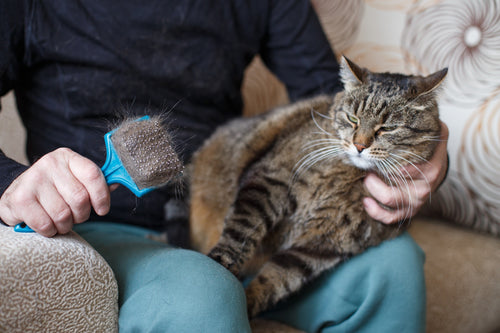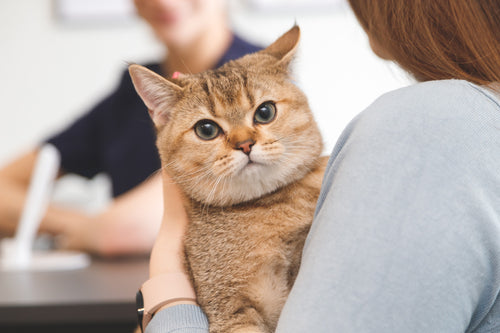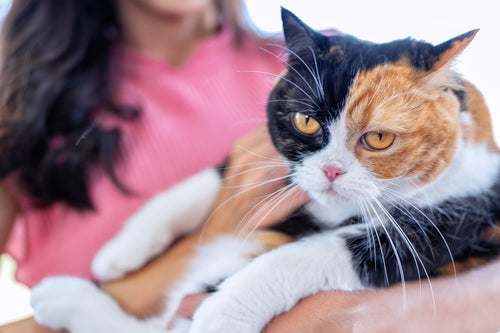Authored by: Dr. Lindsey, DVM
Most cats will defecate every 24-36 hours. If they don’t, they could be constipated. This topic hits close to home as I’m currently dealing with my personal cat having constipation problems due to kidney failure. Constipation is an accumulation of feces in the colon that results in difficult and sometimes painful bowel movements. Constipation also leads to decreased frequency or absent bowel movements. The feces are usually very hard and dry because they are in the colon which functions to help with water absorption. This makes passing the feces even more difficult. Cats will also frequently have a little bit of blood on the stool due to straining. This straining can also result in abdominal pain.
Determining constipation is pretty easy based on the cat’s history and clinical signs. The veterinarian may even be able to palpate the hard stools in the colon. Hard and dry stools, straining to defecate, crying out during defecation, going in and out of the litter box, lack of appetite, vomiting, and lethargy are all signs of constipation. Other testing may be required.
Solutions vary depending on the cause of the constipation but could include things like medications, enemas, laxatives, stool softeners, iv or subcutaneous fluids, diet changes, or probiotics. Enemas should not be given by owners at home, veterinarian expertise is needed to safely and effectively give an enema. Also, some enemas that are given to humans are toxic to cats.

Dr. Lindsey graduated from Colorado State University in 2009 and works in general practice, shelter medicine, and more recently as a civilian contractor veterinarian for the Army. She is also certified in acupuncture and resides in Palm Springs, CA.






